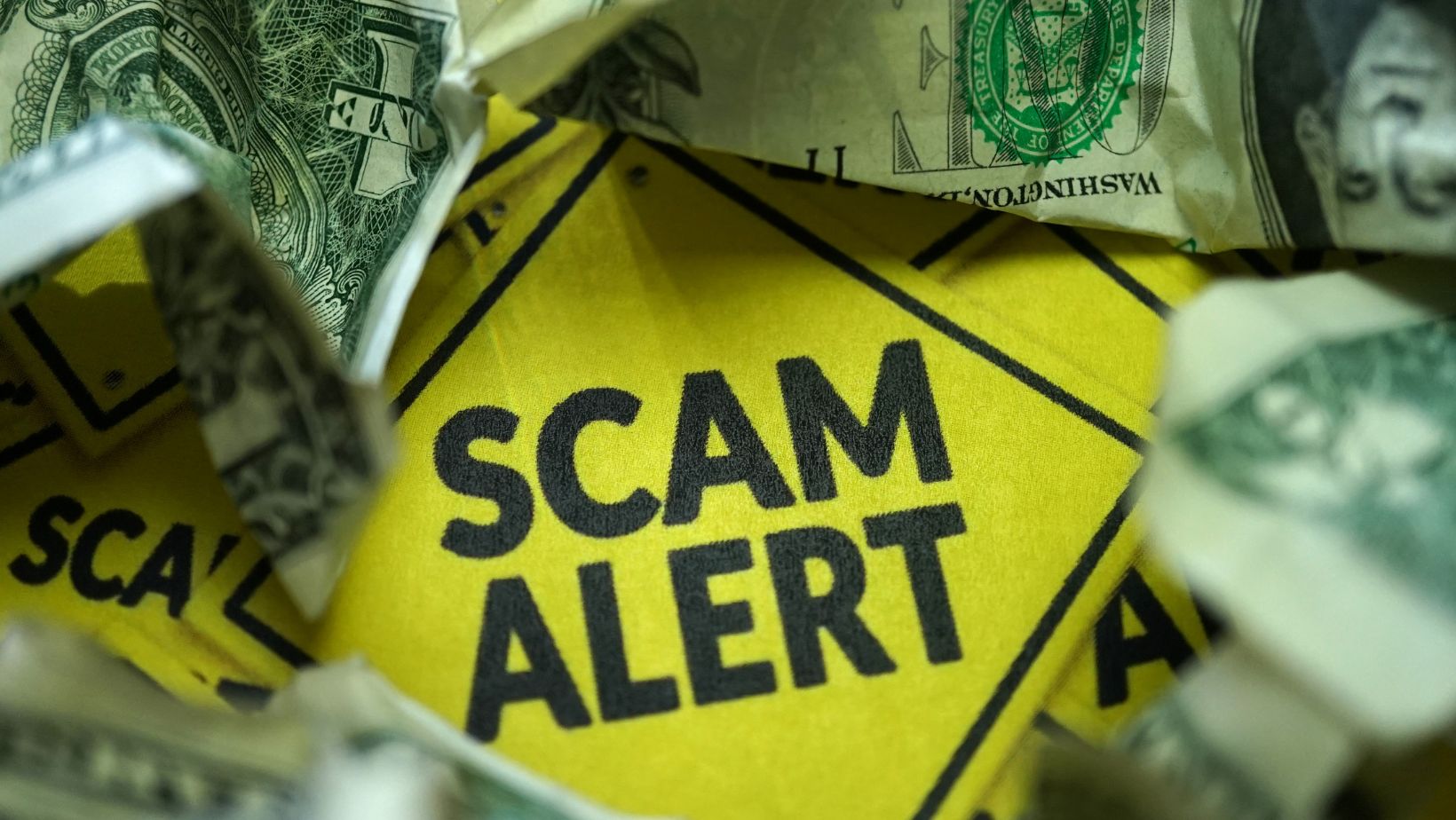Scams in the precious metals industry often target people looking for safe ways to grow their money. The promise of quick profit or guaranteed returns can tempt even careful investors. To avoid losing money, buyers should learn to spot warning signs of fraud and only work with a trusted gold investment firm.
Red flags include offers that sound too good to be true, pushy salespeople, vague storage arrangements, and difficulty verifying a company’s license. Firms that do not clearly show where your metals are stored or who arranges loans through unclear agreements can put your savings at risk. In addition, using a gold investment firm with proven experience and clear information, such as this firm with expert guidance, can help protect your investment.
Staying alert and asking the right questions before buying precious metals makes a real difference. Checking credentials, confirming storage details, and understanding all fees help expose dishonest offers and give peace of mind.
Recognizing Common Precious Metals Scams
Scam tactics in the precious metals market keep evolving as fraudsters find new ways to trick investors. Understanding the specific tricks used in precious metals scams helps buyers spot trouble before money changes hands.
Bait-and-Switch Tactics
Bait-and-switch scams often start with an offer for gold, silver, or bullion at a price that looks very attractive. Dealers might advertise low prices for physical precious metals but push the buyer to purchase different items once contact occurs. For example, a customer may seek a simple gold coin, but the dealer steers the conversation toward rare coins or collectibles that command high margins.
Scammers convince buyers that the original item is suddenly unavailable, of lower quality, or that another option will perform better. This tactic usually maximizes the dealer’s profit rather than serving the buyer’s interests. Often, the product sold does not match the initial deal or has inflated fees. It is also common for unscrupulous precious metal dealers to push overpriced or low-quality coins with questionable claims about their rarity or historical value.
Shoppers should insist on written details about the product before paying. Clear item descriptions, weight, purity, and fees protect the buyer from these tricks.
Spot Price Manipulation
Spot price fraud takes place when dealers misrepresent silver or gold prices to deceive buyers. They may display a fake live spot price for gold, silver, or other precious metals, quoting figures above the actual current market.
Some fraud schemes claim to sell at or below the spot price but add hidden fees or premiums later, so the real cost far exceeds market value. Others lock customers into unfair pricing by delaying transactions for days, during which prices change, and buyers lose out.
A few unscrupulous sellers might shift attention away from objective market rates by offering “discounts” or “special deals” that only muddy the real price. Buyers must compare the quoted spot price to trustworthy, up-to-date sources, check total costs before finalizing a purchase, and avoid deals that seem too good to be true.
Counterfeit Bullion and Rare Coin Schemes
Counterfeit coins and fake bullion bars top the list of precious metals frauds. Scammers sell coins and bars that look genuine but contain little or no precious metal, using materials like tungsten or base metals with a thin gold or silver coating. Certificates of authenticity sometimes come with these fakes, but these documents often hold no real value—fraudsters print them themselves.
They also pass off regular bullion as rare coins, or sell “replicas” without clear disclosure that an item is not authentic. This leads buyers to overpay for ordinary items or worthless copies.
One safe step is to buy only from sources that use strict grading and authentication services. Properly marked packaging, third-party verification, and industry-recognized grading companies provide more confidence. Unusually low prices, vague descriptions, and poor English in listings point to scams.
High-Pressure Sales Techniques
High-pressure sales methods remain common in precious metals scams. Salespeople may pressure investors to act fast, claiming that a unique opportunity exists for only a short time. This can create fear of missing out or urgency that overrides careful decision-making.
Dealers might repeat exaggerated promises of guaranteed returns or suggest that buyers risk losing out unless they purchase on the spot. In some cases, they insist on wire transfers or payments outside safe channels, which limit recourse if fraud occurs.
A trustworthy seller does not push buyers into rushed decisions or guarantee profits. Investors should slow the process, ask direct questions, and demand information in writing. Taking the time to research and think through the purchase protects against high-pressure sales scams in gold, silver, and other precious metals markets.
Protecting Your Retirement and Investments
Retirees face special risks when considering precious metals for their retirement accounts. Fraudsters often target aged investors with convincing sales pitches, inflated promises, and complicated fees that drain savings. Clear steps help reduce those risks and keep your retirement funds secure.
Identifying IRA and 401(k) Precious Metals Fraud
Scammers often focus on self-directed IRAs or 401(k) rollovers, pushing products like gold or silver IRAs. Some use titles such as “IRA experts” or claim special government approval, but these are sales tactics, not credentials. They may persuade retirees to move large amounts from their current retirement accounts into risky or overpriced precious metals investments.
Fraud schemes can include fake paperwork, promises of guaranteed returns, and misleading claims about market trends. In other cases, dealers promise safe storage or rare proofs, yet clients end up with overpriced coins or lose track of their assets. Always check a firm or advisor’s background through professional registration databases. Professional designations mean little unless verified directly with regulatory agencies.
The Commodity Futures Trading Commission (CFTC) and FINRA both provide information about disciplinary histories for advisors and dealers, which helps weed out fraudsters before large sums leave retirement savings.
Understanding Excessive Fees and Hidden Charges
Many precious metals investments for retirement involve a range of fees, including administrative, storage, and insurance charges. Some investors report losses reaching half their original investment, not from poor market performance, but from layers of hidden fees.
Salespeople might quote a competitive “spot price” only to add excessive markups. Numismatic or collectible coins often come with markups far above the spot value, sometimes exceeding 100%. High monthly account maintenance costs also eat away at returns, especially in self-directed IRAs.
Ask dealers and custodians upfront for a full, written breakdown of all costs. Compare these with market rates. Pay close attention to any recurring costs and inflated premiums for collectibles. Reviewing fee disclosures with a financial advisor or certified accountant gives extra protection from hidden expenses.
Choosing Reputable Dealers and Advisors
Selecting a reputable precious metals dealer or advisor is the best defense against scams and inflated fees. Professional financial advisors, commodity trading advisors, and certified public accountants must register with financial regulators and follow strict rules. Always confirm registrations and check for past complaints through official databases.

Dealers who call or email without a prior relationship, offer special “insider tips,” or pressure for immediate decisions often present red flags. Only certain types of gold, silver, or platinum meet retirement account rules. Dealers should clearly state which products are allowed within an IRA or 401(k) and supply transparent paperwork for all transactions.
Investors should avoid offers of leveraged accounts unless they fully understand the risks and verify the dealer’s registration. Reliable advisors will never refuse to document fees or discourage contact with outside professional opinion. By seeking proven advisors and legitimate dealers, retirees can make investment decisions that protect their future stability.
Conclusion
Anyone interested in the precious metals market should take steps to protect their money and personal details. Scammers often promise fast profits, provide little proof of physical metals, or pressure buyers to act quickly.
Key signs of fraud include unclear business details, vague storage information, or missing proper documents. Asking direct questions and requesting written contracts helps limit risks.
Choosing to work with licensed dealers, paying attention to anything that feels suspicious, and keeping records of all transactions can help investors stay safe.
By staying alert and checking details at every step, investors can avoid most scams and feel more secure in their choices.
